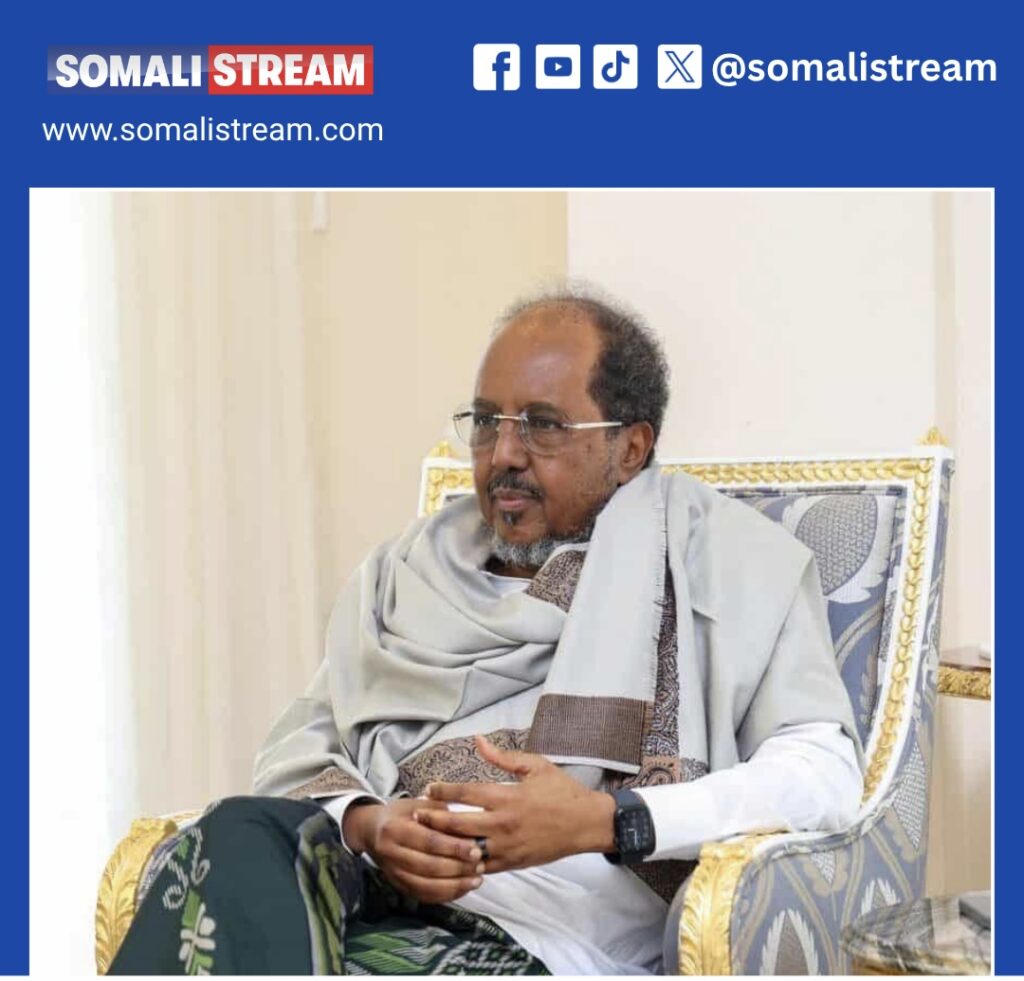A high-stakes political summit in Djibouti between Somali President Hassan Sheikh Mohamud and a powerful bloc of opposition figures, including former Prime Ministers Abdi Farah Shirdon (Saacid), Hassan Ali Khaire, and the former President of Puntland and current senator, ended without consensus on critical governance and transitional issues, further deepening the nation’s political deadlock. Also in attendance were former Prime Ministers Ali Mohamed Geedi, Omar Abdirashid Ali, Dr. Abdiwali Mohamed Ali, as well as former Speakers of Parliament Sharif Hassan Sheikh Adan and Mohamed Mursal Sheikh Abdirahman, the latter now backing the government’s election plan.
The meeting, which followed the recent Carta Anniversary celebration in Djibouti, exposed a severe and ongoing power struggle at the highest levels of the Somali state.
The Somali leadership meeting, as exclusively revealed by Somalistream, was requested by President Mohamud himself in what observers saw as an attempt to seize a political opportunity, gathered current and former high-ranking state officials.
While the initial gathering in Djibouti was organized to commemorate the 25th anniversary of Somalia’s re-establishment of statehood at the 2000 Carta Peace Process, the subsequent discussion exposed a bitter rift over the direction of the country’s incomplete federalization process.
The core of the discussion quickly pivoted to the country’s precarious political transition, specifically addressing the lack of a fully ratified constitution and a unified election model. President Mohamud opened the discussion by calling for joint, shared participation in the country’s governance, stating his readiness for consultation to fulfill the vision articulated by Djibouti’s President Ismail Omar Guelleh. He characterized the attendees as respected elders who understand the nation’s predicament and have a moral duty to safeguard its future.
However, the opposition immediately escalated the confrontation, making a direct and unambiguous demand: President Mohamud must relinquish power to the Federal Parliament before the constitutional deadline of May 15, 2026. The opposition leaders insisted that handing control back to the legislative body was necessary to prevent the country from sliding into an unprecedented constitutional and security crisis. A former Prime Minister under Hassan Sheikh Mohamud’s first term Abdi Farah Shirdoon who is now a fierce critic to the President and Senator Abdirahman Mohamed Farole delivered a pointed warning regarding the current “dangerous state” of the nation.
President Mohamud’s response was a definitive rejection of the opposition’s demand. He countered that he would not transfer executive authority to the Parliament, arguing that the term limits for the legislative body would expire even before his own mandate concludes. Though the President insisted his intentions were to consult and achieve a shared consensus on the national vision, the opposition leaders remained highly critical.
The opposition accused President Mohamud of being fundamentally unprepared to prioritize the nation’s security and stability. Furthermore, they alleged that he was engaging in political “brokerage” to divide and weaken the opposition front. This accusation served as a powerful challenge to the President’s authority.
In a moment described as a political bind, President Mohamud indicated he would reflect on the counsel and ideas presented, stating that something must be agreed upon from the meeting.
The opposition closed the meeting by issuing stark warnings, informing the President they were prepared to intervene to “take over the hands” of the leadership if he steered the country in the wrong direction. They reminded him that his authority expires in May 2026, and after that date, he will become a figure of whom the national dialogue will simply consult.
Despite the fact that the meeting took place, no concrete results were achieved, leaving the key issues of the transition unresolved. President Mohamud concluded the summit by stating he remains ready for dialogue, and declared that he would personally lead the transition talks going forward, effectively dismissing any competing mediation efforts.


